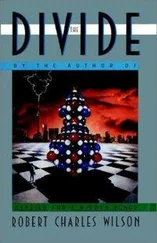“It might not be that way.”
“Uh-huh. But it might.”
Matt was tired again. It was as if he had made some silent bargain, traded sorrow for fatigue. Ever since Rachel left, he had been empty of grief but full of this daily exhaustion.
He wondered whether Kindle was right, whether they were headed toward a kind of domestication. He wondered what dark marvels the Earth might harbor in a hundred years or a thousand. Two species of humanity, perhaps: the wild and the tame.
He said, “Have you talked to Abby about leaving?”
“Have I told her, you mean? No. I thought I’d speak to her closer to the event. Say I’m going, then go. No time to blame herself.”
“She will, though.”
“Maybe.”
“It won’t be good for her.”
“She’s survived worse. Hell, I don’t mean all that much to Abby Cushman. Target of opportunity. If she were fifteen years younger I’d say you and her might hit it off. You both need somebody to doctor. Kindred souls. But she’ll be happy in Ohio.”
“Easy as that?”
“Not easy at all, Matthew. Abby’s been generous. You’ve been generous.”
“It’s been paid back often enough.”
Kindle looked at the stars, scratched himself. “We should maybe get back before Joey starts layin’ eggs.” They began to walk. “I’ll ride as far as Laramie,” Kindle said. “Turn back from there.”
“It’ll be hard,” Matt said. “One less voice against the Colonel.”
“Told you,” Kindle said. “It’s not my job.”
Unspoken, in a glance from Kindle to Matt, in the darkness far from the firelight: It’s your job now.
* * *
The next day dawned clear and cool. Engines revved in morning light, RVs threw long shadows over the scrub.
Colonel Tyler, leading the caravan as it wound through long miles of Wyoming prairie, was first to catch sight of the miraculous new thing:
It was a dusty blue dome on the horizon, too perfectly symmetrical to be a product of nature; capped with white, like a mountain.
Something artificial. Something large beyond comprehension. A work of engineering that beggared any solely human effort.
Calm and pretty in the dry blue distance.
It’s that spaceship, Sissy told him. To take the dead away.
He recalled the idea, dimly, from Contact, from rumors he had heard on the radio: a vast thing nearly alive that harbored emigrant souls, and a miniature of the Earth inside it; Elysian fields, a world without evil.
Her voice was like a sizzle in his ears:
We must see it more closely. We must abide here for a time.
Even Sissy was excited.
Rosa Perry Connor had always dreamed of flying.
She had grown up earthbound. Chained to a suburban Southern California tract development, restless by nature, Rosa spent her childhood summers exploring concrete storm drains, half-made houses, and the neighborhood’s few surviving orange groves. A reader, she devoured stacks of Little Golden Books, then the Bobbsey Twins, finally her older brother’s collection of How and Why Wonder Books, wherein she discovered a volume devoted to Airplanes—which ignited her long romance with the idea of flight.
The Orange County air was full of a number of things, mainly petrochemicals, but including passenger jets, helicopters, and military aircraft. Whenever one of these machines passed overhead, Rosa would come to a stop. She would stand at attention, head craned upward, one hand raised, as if in salute, to shade the sun from her eyes. “F-104,” she would announce, or, “Looks like a DC-8.” She became a student of silhouettes, a connoisseur of contrails. Always meticulous, she taught herself the history of flight from Montgolfier to the Atlas rocket.
Her obsession baffled her friends. Her parents were barely aware of it. Her father designed circuits for an electronics firm. Her mother played bridge with women whose suntans had acquired the quality of aged leather and whose jaw muscles stood out like taut little ropes when they laughed. Rosa imagined herself in a Fokker, strafing her parents’ barbecues and garden parties. No more fat men in business suits exhaling sour whiskey clouds, no more creased women in pastel shorts drinking martinis. She would rise above all this.
Her parents hated flying.
They had family back east—Grandma Perry in Wisconsin, Grandma Hagstrom in Florida. Sometimes Rosa’s parents took her visiting. By car. Across the desert. Across the farmland. Earthbound. Wheeling through an interstate hell of Stuckeys, Bide-a-Wees, and souvenir shops. Instead of above these dreadful things!
Rosa, from the age of seven to the age of seventeen, begged her parents to fly, at least once, one summer. Leave the car at home, she pleaded. The car was hot, crowded, and took forever. An airplane would save days of travel. An airplane would turn torture into ecstasy.
“But if we drive,” Rosa’s mother said with maddening patience, “we can see the country.”
Ye gods, Rosa wanted to scream, we’ve seen the country! Every inch of every road was tattooed indelibly into their brains! What could be left to see? One more plastic teepee? One more jackalope postcard?
Meanwhile, she made plans. She would go to college. She would study… well, whatever was useful to a pilot. Mathematics, aerodynamics. Her eyes were good. She would take a job in civilian aeronautics. Somehow, she would find her way into a cockpit.
And then—ten days before her eighteenth birthday—her parents announced yet another trip to Florida. “But this time we’re flying.”
It was the best present ever, and it almost made up for all those miles on the road.
Rosa waited with itchy impatience for the appointed day. The trip to Los Angeles International was novelty enough. From the waiting room at the gate she was able to study in gratifying detail the silvery bodies of Vanguards, Convairs, 707s. They were cumbersome on the ground; out of their element, like beached whales. The distant runways turned them into sleek sky-things through the redeeming magic of speed and altitude. Watching, Rosa trembled with excitement.
The boarding call startled her. After an eternity of waiting, it seemed almost—too soon.
Their plane was a new Douglas DC-8 Super 61, a stretched version of the standard DC-8. Rosa had picked out, had insisted upon, a window seat, and she watched with honed attention as the luggage was loaded from a cart, thumping into an invisible space under the passenger compartment; listened with keen ears to the final latching of the door, revving of engines, rumble of wheels as the taxiing began.
She was able to see the runway before the plane turned for takeoff. The runway was long and empty, a strange road for this massive machine. The stewardess demonstrated oxygen masks and advised passengers that their seat cushions could be used for flotation. Rosa watched and listened with a sense of unreality. Flotation? She was interested in flying, not floating.
Then the engines whined to a higher pitch. The sound invaded every part of the plane: the bulkhead, the window, her seat, herself. A brake was released and the aircraft began to roll.
To accelerate. She had not been prepared for this brutal burst of speed. From below, every takeoff had seemed graceful. Elegant. From inside, it was patently an act of force. The wings, which had seemed so solid, bounced and wobbled against the air. The fuselage rattled as if its rivets were about to pop.
And Rosa began to entertain her first doubt.
Was this practical? Would all this machinery really work? Could this fragile bus possibly sustain itself a mile from the surface of the earth?
Читать дальше












